Search Results
Showing results 81 to 100 of 107
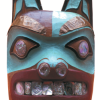
Who Do You Think You Are?
Source Institutions
In this activity, learners use maps to locate the Northwest Coastal region.
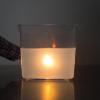
Blue Sky
Source Institutions
In this optics activity, learners explore why the sky is blue and the sunset is red, using a simple setup comprising a transparent plastic box, water, and powdered milk.
Fish Prints
Source Institutions
In this hands-on art activity, learners will study and identify features of the external anatomy of a fish.

Pollution Diffusion
Source Institutions
Learners design their own experiment to investigate how pollution diffuses through ground material.
Ships Ahoy!
Source Institutions
Design a vessel that tests the limits of wind power given a set of off the shelf and recycled materials.
Plants: Hanging Tough
Source Institutions
In this hands-on activity, learners will become familiar with the special adaptations of rainforest plants and discover the conditions needed for tropical trees to survive along with what can impinge
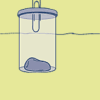
Rescue Mission
Source Institutions
In this hands-on activity, learners use the steps of the design process to create a hook to rescue a "space capsule" from the water.
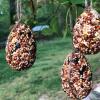
For the Birds
Source Institutions
In this activity, learners will explore nature by creating food for birds. Learners will develop fine motor skills and engage in nature observation through this activity.
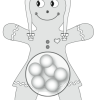
Generations of Traits
Source Institutions
In this hands-on activity, learners track and record the passage of colored "pompom traits" through three generations of gingerbread people.
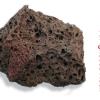
Rock Cycle Roundabout
Source Institutions
In this activity, learners will learn how igneous rock, metamorphic rock, and sedimentary rock are formed as part of the rock cycle and that the same forces that produce/change rocks also produce/chan
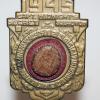
Secret Writing Devices
Source Institutions
In this activity about encryption, learners cut out a secret decoder badge from a handout and use it to encode messages to each other.
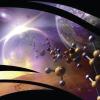
Do the Mystery Samples Contain Life?
Source Institutions
In this activity (on pages 13-16 of the PDF) learners investigate three mystery samples to see which one contains life. The three samples are sand, sand and yeast, and sand and antacid.
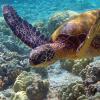
Habitat Adaptation Matchup
Source Institutions
In this activity, learners work in small groups to match various marine animals with their different environments.
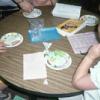
Plant Parts and Their Diseases
Source Institutions
This exercise is designed to teach young learners the different parts of a plant (root, stems, leaves, flowers, fruit, and seeds), the basic functions of each part, and to show that tiny microscopic o
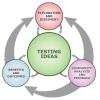
Poking Around: Having Students Experience the Real Process of Science
Source Institutions
Using indirect methods, learners determine the shape and size of a piece of carpet hidden under a piece of plywood.
Coincidental Colonization
Source Institutions
In this game of chance, learners will discover how organisms colonized the Galápagos Islands, experiencing how chance plays a role in the successful dispersal of species to new areas.
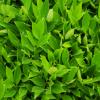
Healthy Habitats Have Native Plants
Source Institutions
In this activity, learners help identify native and non-native plant species, learn about invasive species, and determine how native plants provide a healthier habitat.

Clay Exploration
Source Institutions
In this activity, learners explore the possibilities of clay as a natural material.
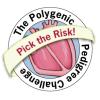
Pick the Risk: The Polygenic Pedigree Challenge
Source Institutions
In this activity, learners are challenged to track and record the passage of colored pom poms (representing genes) through generations of a family using a pedigree.
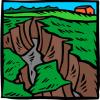
Shaking It!
Source Institutions
In this experiment, learners design and build a model room in a shoebox and furnish it with tiny furniture.
